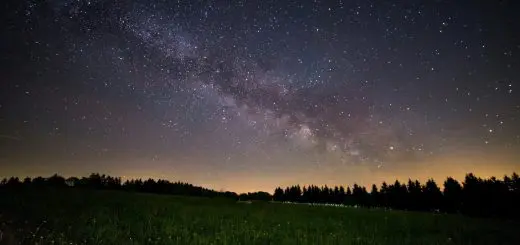African Mythology: Ancestral Spirits and Beliefs

Looking for more amazing products? Check out our online store and explore our collection here! Happy shopping!
Before diving in, please note: This post is for informational purposes only. If you’d like to know more about how we approach topics, feel free to check out our friendly Disclaimer Page.
Hey there, amazing readers! 
We’re committed to delivering quality posts, and your support (even just sticking around despite the ads) means everything to us. So, bear with us, and thanks for helping us keep the good vibes rolling. Now, on to the fun stuff!
TRANSLATE BUTTON AT THE END OF THE ARTICLE
Introduction to African Mythology
African mythology is a rich tapestry of stories, beliefs, and traditions that have been passed down through generations on the continent.
These myths and legends often revolve around the spiritual realm, with ancestral spirits playing a central role in many African cultures.
Ancestral spirits are believed to be the link between the living and the dead, guiding and protecting their descendants.
These beliefs shape various aspects of African society, influencing everything from religious practices to daily rituals.
Ancestral Spirits in African Beliefs
Ancestral spirits hold a revered place in African beliefs, serving as intermediaries between the physical and spiritual worlds.
It is believed that these spirits continue to exist after death and can influence the lives of their descendants.
Ancestors are seen as guardians who provide wisdom, protection, and blessings to their living family members.
Honoring and respecting these spirits is an essential part of many African cultures, with rituals and ceremonies dedicated to appeasing and communicating with them.
The Role of Ancestors in African Society
Ancestors play a vital role in African society, shaping moral values, social norms, and community cohesion.
The guidance and wisdom of ancestors are sought in times of need, and their blessings are invoked during important life events such as births, weddings, and funerals.
Ancestors are believed to watch over their descendants, ensuring their well-being and success.
Their influence extends beyond individual families to entire communities, fostering unity and solidarity among tribe members.
Traditional Practices to Honor Ancestors
African cultures have various traditional practices to honor and appease ancestral spirits.
Offerings of food, drink, and incense are commonly made at ancestral shrines as a sign of respect and gratitude.
Rituals such as libations, prayers, and ceremonies are performed to communicate with ancestors and seek their guidance.
Ancestral altars are often adorned with pictures, candles, and other symbolic items to create a sacred space for connecting with the spirit world.
Types of Ancestral Spirits in Africa
There are different types of ancestral spirits recognized in African mythology, each with its own attributes and roles.
Some ancestors are considered benevolent and protective, while others may be vengeful or mischievous.
Ancestors can be categorized based on their lineage, achievements in life, or the circumstances of their death.
In some cultures, ancestors are believed to inhabit specific natural elements or animals, serving as guardians of these domains.
How Ancestors Communicate with the Living
Ancestors are believed to communicate with the living through dreams, visions, and signs in the natural world.
It is thought that ancestors can influence events in the physical realm and offer guidance to their descendants.
Shamans, diviners, and spiritual leaders may act as intermediaries, interpreting messages from the spirit world and conveying them to the community.
Personal rituals and prayers are also used to establish a direct connection with ancestors and seek their blessings.
Significance of Ancestral Offerings
Offerings to ancestors hold great significance in African mythology, symbolizing respect, gratitude, and reciprocity.
Food, drink, and other items are presented as gifts to appease ancestral spirits and maintain a harmonious relationship with them.
The act of offering is a way to honor the memory and legacy of ancestors, ensuring their continued presence and support in the lives of their descendants.
Ancestral offerings are often made on specific occasions or during significant life events to invoke blessings and protection.
Taboos and Rituals in Ancestor Worship
Ancestor worship in African cultures is governed by taboos, customs, and rituals that govern the proper way to interact with ancestral spirits.
Taboos may include rules about what can be offered to ancestors, how ceremonies should be conducted, and who is permitted to communicate with the spirit world.
Rituals such as spirit possession, divination, and sacrifice are common in some cultures as a means of honoring ancestors and seeking their guidance.
Violating these taboos can result in spiritual disturbances or negative consequences for individuals and communities.
Myths and Legends about Ancestral Spirits
African mythology is rich with myths and legends surrounding ancestral spirits, depicting them as powerful beings with the ability to shape destiny and influence the natural world.
Stories of heroic ancestors, ancestral curses, and divine interventions are passed down through oral traditions, providing moral lessons and cultural insights.
Myths about ancestral spirits often highlight the importance of respecting tradition, honoring one’s lineage, and staying connected to one’s roots.
These stories serve as a source of inspiration, guidance, and identity for generations of Africans.
Common Themes in African Mythology
Several common themes run through African mythology, including the interconnectedness of the physical and spiritual realms, the cyclical nature of life and death, and the importance of community and ancestry.
Ancestral spirits are seen as part of a larger cosmic order that governs the universe, with humans playing a role in maintaining balance and harmony.
Themes of sacrifice, redemption, and transformation are prevalent in African myths, reflecting the enduring values and beliefs of the continent’s diverse cultures.
Impact of Ancestral Beliefs on Modern Africa
The beliefs and practices surrounding ancestral spirits continue to have a profound impact on modern Africa, shaping religious rituals, cultural traditions, and social norms.
Many Africans maintain strong connections to their ancestral heritage, seeking guidance and protection from their forebears in times of uncertainty.
Ancestor worship remains a central aspect of spiritual life for millions of people across the continent, providing a sense of identity, belonging, and continuity in an ever-changing world.
The influence of ancestral beliefs can be seen in art, music, literature, and everyday practices that celebrate and honor the legacy of past generations.
Comparing African Ancestral Spirits with Other Cultures
While ancestral beliefs are prevalent in many cultures around the world, African ancestral spirits possess unique characteristics and functions that set them apart from other traditions.
In African mythology, ancestors are viewed as active participants in the lives of their descendants, offering guidance, protection, and blessings on a daily basis.
The relationship between the living and the dead is emphasized in African cultures, with ancestors playing a central role in family dynamics, community affairs, and spiritual practices.
Comparatively, other cultures may see ancestors as distant or passive figures who are honored primarily on certain occasions or through ancestral worship ceremonies.
The diverse manifestations of ancestral beliefs reflect the rich tapestry of human spirituality and the enduring connection between past, present, and future generations.
Conclusion
In conclusion, African mythology is a complex and vibrant tapestry of stories, beliefs, and traditions that center around ancestral spirits and their influence on daily life.
Ancestors are revered as guardians, guides, and protectors who offer wisdom, blessings, and support to their living descendants.
The traditions of honoring and communicating with ancestral spirits are deeply rooted in African society, shaping moral values, social norms, and cultural practices.
The myths, rituals, and taboos surrounding ancestral beliefs provide a framework for understanding the interconnectedness of the physical and spiritual realms and the enduring legacy of past generations.
While African ancestral spirits share similarities with other cultures’ beliefs, they possess unique attributes and functions that reflect the diverse and dynamic nature of human spirituality.
As Africa continues to navigate the complexities of the modern world, the ancestral beliefs that underpin its societies offer a source of strength, identity, and continuity for future generations.

The Enlightenment Journey is a remarkable collection of writings authored by a distinguished group of experts in the fields of spirituality, new age, and esoteric knowledge.
This anthology features a diverse assembly of well-experienced authors who bring their profound insights and credible perspectives to the forefront.
Each contributor possesses a wealth of knowledge and wisdom, making them authorities in their respective domains.
Together, they offer readers a transformative journey into the realms of spiritual growth, self-discovery, and esoteric enlightenment.
The Enlightenment Journey is a testament to the collective expertise of these luminaries, providing readers with a rich tapestry of ideas and information to illuminate their spiritual path.
Our Diverse Expertise
While our primary focus is on spirituality and esotericism, we are equally passionate about exploring a wide range of other topics and niches 

To ensure we provide the most accurate and valuable insights, we collaborate with trusted experts in their respective domains 
Our blog originally focused on spirituality and metaphysics, but we’ve since expanded to cover a wide range of niches. Don’t worry—we continue to publish a lot of articles on spirituality! Frequently visit our blog to explore our diverse content and stay tuned for more insightful reads.
Hey there, amazing reader! 
Check out our store here and take a peek at some of our featured products below! Thanks for being awesome!













